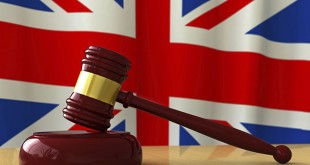What is private life? Where does it end and the public domain begin? This article will compare how French and English law protect the right to privacy, looking particularly at the impact of the European Convention on Human Rights (the ‘ECHR’).
France has a long history of upholding privacy. In the early 20th century, courts developed the “right to one’s image” as an aspect of general civil liability. Since 1970, both the Civil and Criminal Codes have contained specific protection. The right to privacy even enjoys constitutional status following a decision of the Conseil Constitutionnel in 1995. These provisions constitute a very strong defence for a person’s private life. There also seems to be little distinction between public figures and ordinary citizens. For example, after François Mitterand’s death in 1996, his family were able to prevent the publication of a book by his doctor detailing his ill health whilst President. Furthermore, the emphasis on the need for consent means that individuals are also protected in public places, as in the case of a man whose photo was taken at a gay rights parade.
It may be argued that, in this respect, French law does not take sufficient account of the right to freedom of expression under Art. 10 of the ECHR. There has always been a right for the public to receive information through the press, but this is not quite the same thing; and it can be defeated by the need to protect “human dignity.” Certainly, France found itself on the wrong side of the Strasbourg Court in the case of Mitterand, where it was ruled that the permanent injunction violated Art. 10 because there was no “pressing social need” for it. However, there are signs that the traditional hard-line approach to privacy is changing. When Nicolas Sarkozy attempted to prevent the details of the breakdown of his marriage from being publicised, the court adopted the balancing exercise of the European Court, ruling that there was a sufficient public interest in allowing its publication.

In contrast, the impact of the ECHR on English law has been dramatic. Until very recently, there was no action for breach of privacy. The only protection available was the tort of “breach of confidence”, where a person receives information that he should know is confidential and then misuses it. However, since the Human Rights Act 1998 made the ECHR part of domestic law in England and Wales, it has been rapidly widened to include many other aspects of privacy. Although individuals cannot sue each other under the Human Rights Act, courts are required to act in a way that is compatible with ECHR rights. In Campbell v Mirror Group Newspapers (2004), the model Naomi Campbell successfully sued the Daily Mirror for publishing details of her treatment for drug addiction. The House of Lords said that this was based not on the duty of confidence, but on “the protection of human autonomy and dignity” and Art. 8 of the ECHR. If a person has a reasonable expectation of privacy, this will be protected unless the defendant’s Art. 10 right is more important in the circumstances. Subsequent cases have considered the importance of “the public interest” in publishing information, but they have also followed the European Court’s judgment in Von Hannover v Germany (2004), where it was held that public figures have a right to privacy in their daily lives.
French and English law began from very different positions. While privacy is a constitutional right in France, and protected by civil and criminal law, it did not even exist in England for a very long time. Part of the difference is cultural – the French were traditionally far less interested in the private lives of their politicians than the English, who are regularly outraged by public sex scandals. However, it was felt for a long time in England that the law was still insufficient, and the Human Rights Act was in some ways an excuse for judges to do what they had always wanted. With this and the gradual change in the way France approaches the rights to privacy and free speech, the two countries’ legal systems have been brought closer together by the ECHR.
Stefan Liberadzki
University of Cambridge
 Le petit juriste Site de la revue d'actualité juridique
Le petit juriste Site de la revue d'actualité juridique





